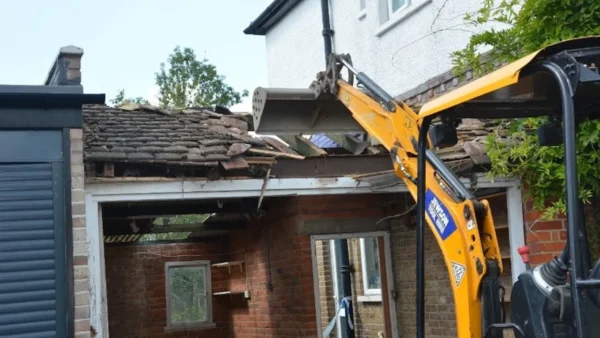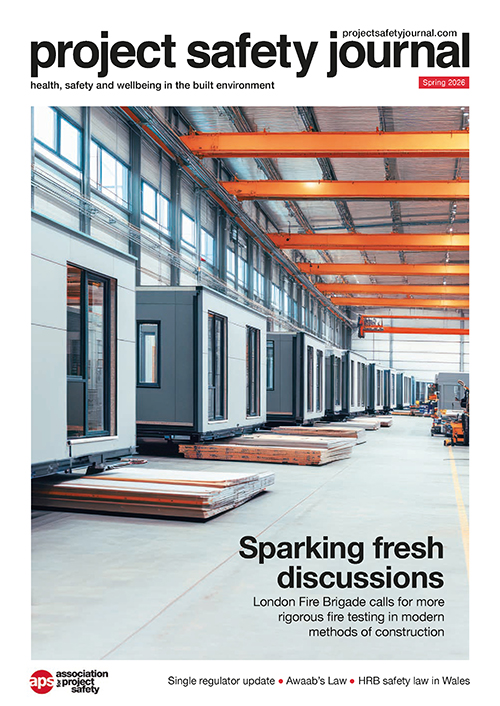
APS is leading on cross-industry efforts to develop new guidance for organisational capability with respect to competence management to help companies in the built environment to meet their obligations under the Building Safety Act.
The work is being led by Sofie Hooper, who joined APS as deputy chief executive in May. Hooper explained that competence frameworks and standards had been developed for individuals, but there is no equivalent for organisations.
“As an organisation you need to be able to ensure that you’ve got the right capability in place to deliver against different functions, but we don’t really have anything in place across the sector to show what is expected to be delivered,” she said.
Under the act, organisations must be able to demonstrate their capability, competence and capacity to fulfil their obligations related to building safety regulations.
This includes having appropriate management systems, processes, policies and resources in place to ensure work is carried out in accordance with regulations and that individuals working for the organisation possess the necessary skills, knowledge and experience and carry out the correct processes and behaviours.
Principles for organisational competence

Hooper explained that the Industry Competence Committee (ICC) – a statutory committee reporting into the Building Safety Regulator (BSR) – has set out principles for organisational competence in a consultation document published in May.
This focuses on the management of competence and will be supplemented by additional high‑level principles in a document being issued later this year.
“Unlike the frameworks for individual competence, where we’ve got an overarching framework, BS 8670-1, and then PAS documents and other frameworks based on that standard, we don’t have anything like that for organisational capability or the management of competence in organisations, and that’s a real gap,” said Hooper.
“We know that the BSI is looking to develop a new standard, but that will take two years as a minimum, yet industry has a gap to fill now.”
Following a challenge by Dame Judith Hackitt to the professional bodies (PBs) to fill this gap, APS brought several PBs together to collaborate, having already been involved in earlier work in this area within the Building Safety Alliance – of which APS and its president Mark Snelling were co‑founders. Almost 70 organisations have now become involved, ensuring the new guidance is representative of the wider industry.
The document will align with the ICC work and broadly use the principles set out in Managing Competence for Safety-related Systems, published by the HSE in 2007, updated and contextualised for the built environment.
A technical author has been appointed with an expectation of publishing the guidance in September. Hooper has been invited to join a Task and Finish Group of the ICC to ensure the two workstreams dovetail.
Driving change
Hooper said that being able to drive up competence standards and support APS members to develop their skills, knowledge, experience and behaviours to meet Building Safety Act requirements was one of the main attractions of taking up the newly created deputy chief executive role.
“The great thing about APS is that it wants to be proactive rather than take the ‘wait and see’ approach and they are willing to invest in some of the systems and structures that are required to drive up standards.
“I was obviously aware of APS because of my close collaborations with Anthony Taylor and Mark Snelling when establishing the Building Safety Alliance, where driving up competence standards and culture change through collaborations are the key objectives.”
Hooper joined from the Institute of Workplace and Facilities Management (IWFM), where she worked for eight years, the last two years as its head of policy and research. She has spent much of her career as a public policy adviser across a range of sectors, predominantly in the UK and the EU.
At IWFM, she co-authored the key industry post-Grenfell report Safer People, Safer Homes: Building Safety Management, and provided regular liaison with the BSR, Ministry of Housing, Communities and Local Government (MHCLG) and local government and other key policy units.
She was also instrumental in securing the inclusion of the Building Safety Alliance, the successor of Working Group 8 of the Competence Steering Group, into pre-legislative parliamentary and government reports.
Hooper has a legal background, having studied law at KU Leuven, the oldest university in Belgium, where she grew up.











